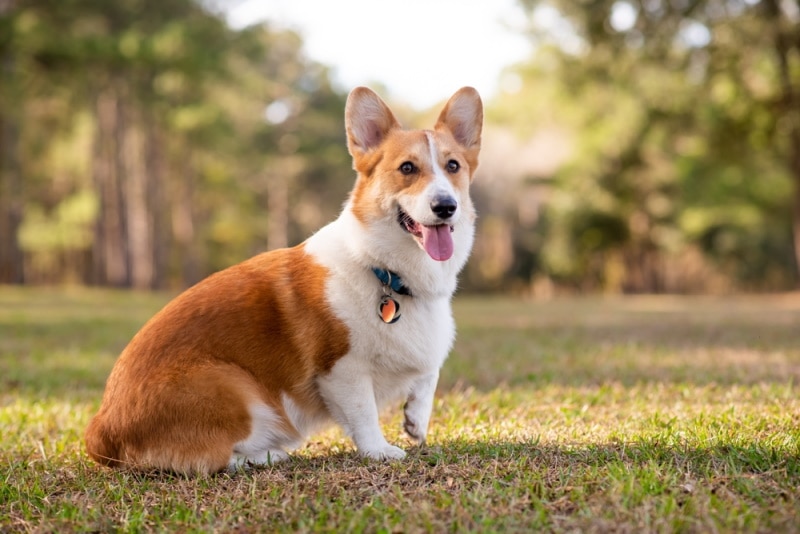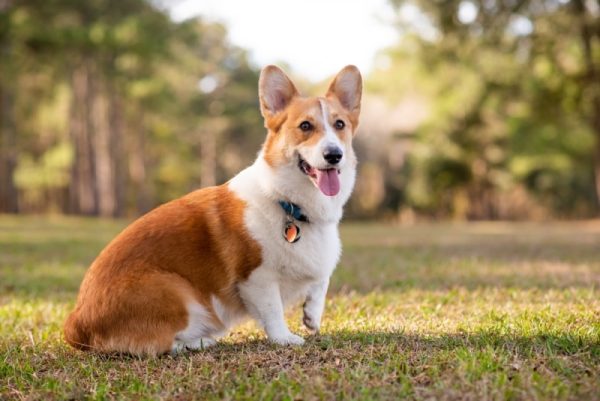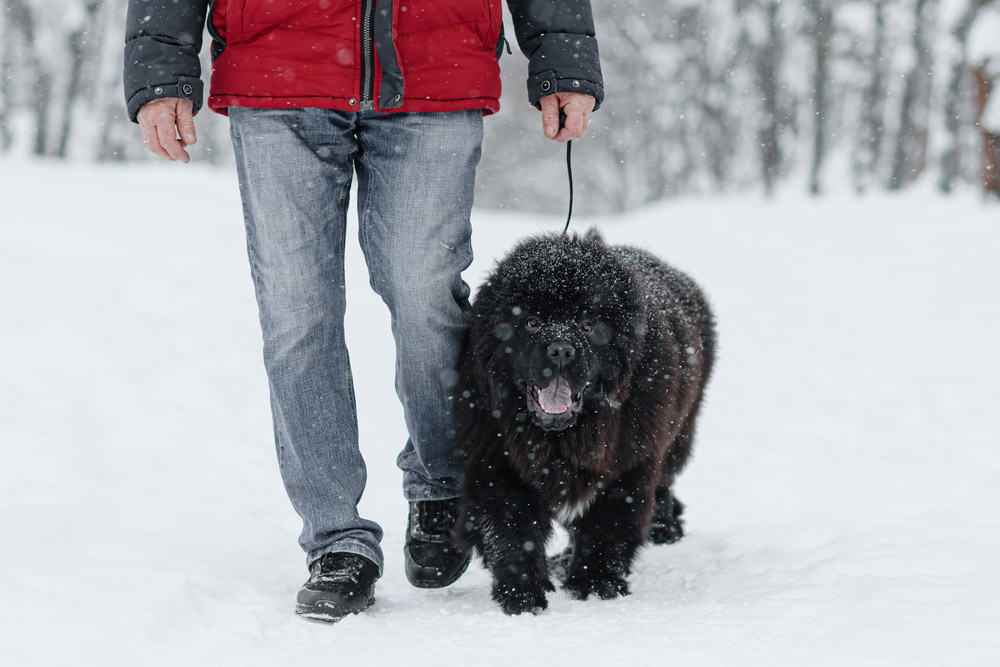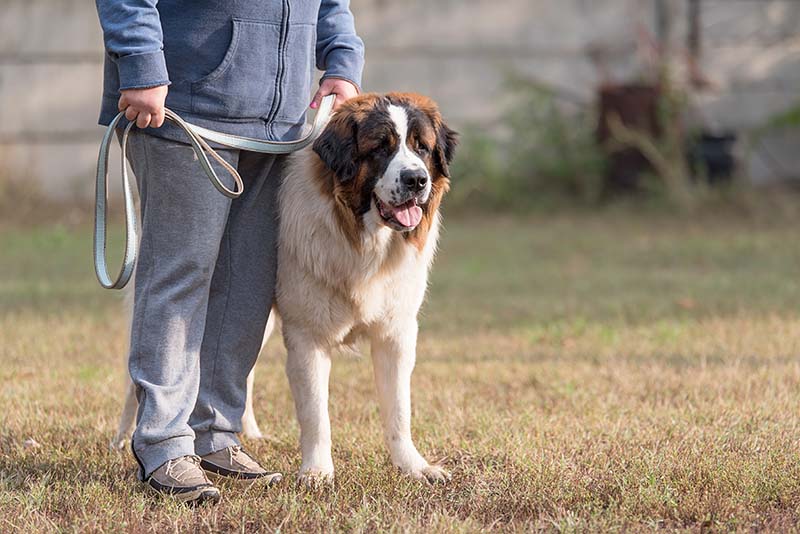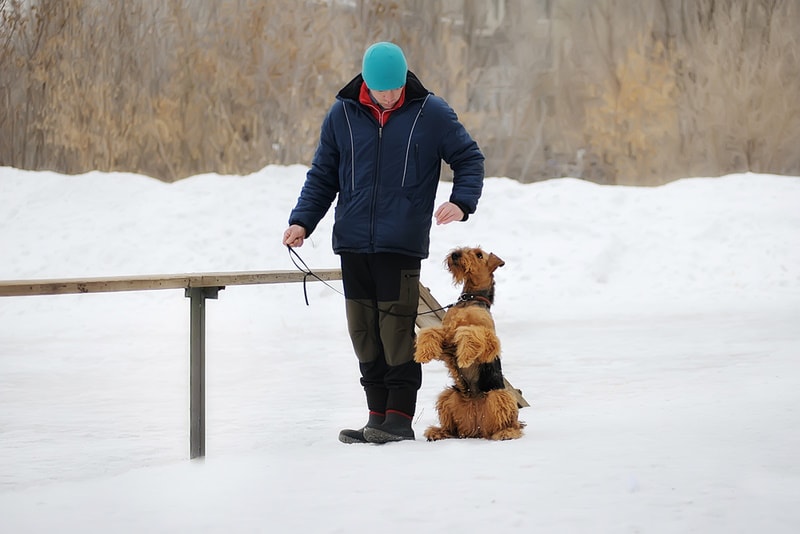With their dignified and regal demeanors, it’s no wonder so many people fall in love with Corgis. These dogs are known for their intelligence—in fact, they’re listed by Stanley Coren as the 11th most intelligent breed of dogs in his book, The Intelligence of Dogs.
The good news for Corgi owners is that this means that these dogs are generally eager to please, and therefore, easy to train. Below, we share some of our favorite tips and tricks on how to train a Corgi!
The 14 Tips to Train a Corgi
1. Socialize Your Corgi
Corgis are naturally friendly and outgoing dogs, but it’s important to start getting them used to meeting new people and animals while they are still young. Take your Corgi to a busy place, like a park, so they can get used to strangers walking by and even stopping to say hello. It’s best if there is some interaction with new people each time.
Don’t forget to reward your Corgi with treats to help him associate being social with something positive.
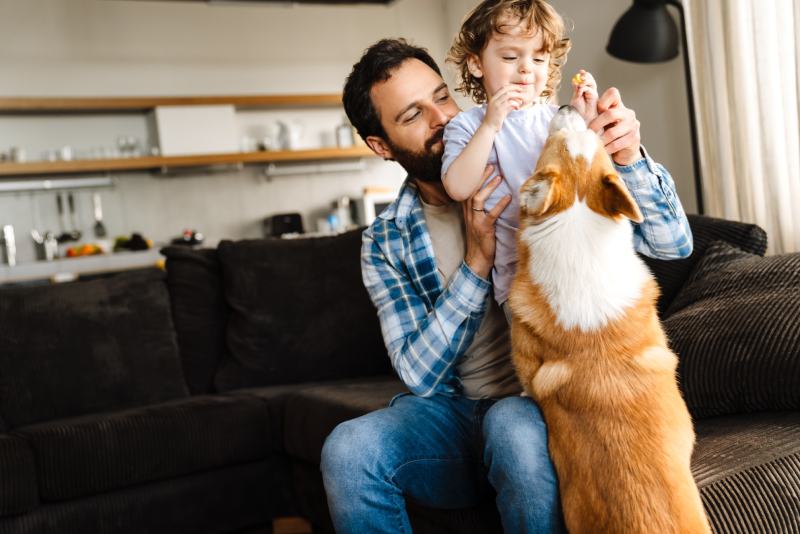
2. Help Your Corgi Get Used to Their Environment
Getting to know people and animals is great, but don’t forget to also let your puppy get used to the environment around them. Take them out so she can explore using their senses.
If you want them to get used to car rides, you’ll need to train them to tolerate and even enjoy them. Try to expose them to car journeys while they’re still young. Some people even play soundtracks of loud noises to get their dogs used to it.
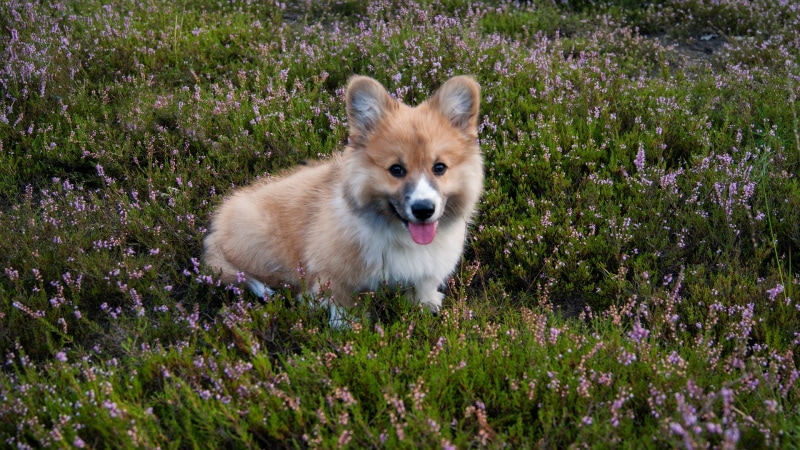
3. Get Your Puppy Used to Grooming
Corgis are known for shedding significant amounts of hair. They have a thick coat that needs brushing daily. With such a thick coat, a blow dryer will help them dry faster, but before you can use one, you’ll need to get your Corgi used to the noise.
Before using a blow dryer on your Corgi, have them in the same room while you’re running it. Give them plenty of praise and treats, so that they begin to associate the loud noise of the blow dryer with something positive. Eventually, use the blow dryer on your Corgi, and don’t forget to pet, reassure, and treat them as you do.
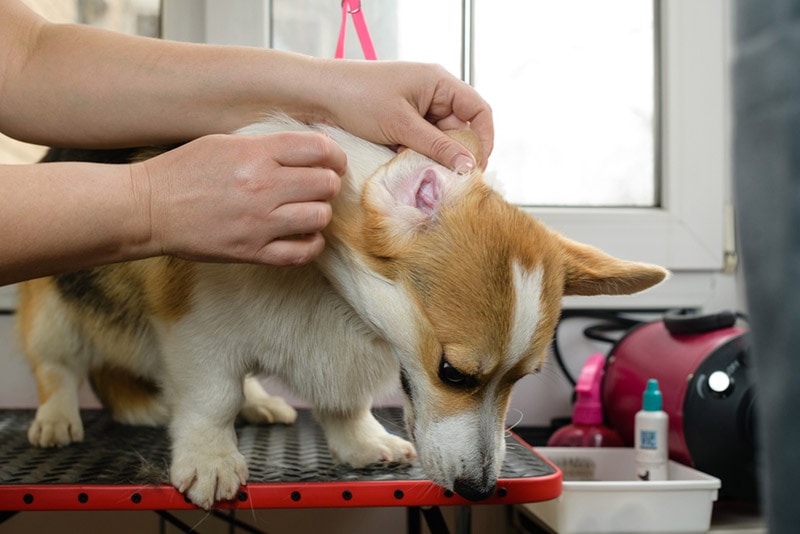
4. Establish a Daily Routine
Establishing a consistent daily routine will help your Corgi understand that there are appropriate times for doing different things—including eating, drinking, playing, going outside to go potty, grooming, and sleeping.
With a daily routine, your Corgi will learn that there are specific times when it’s appropriate to go outside and go potty, and therefore, be more likely to wait until it’s time to go. Likewise, a Corgi that’s used to a daily grooming time is more likely to go along with it without causing mischief.
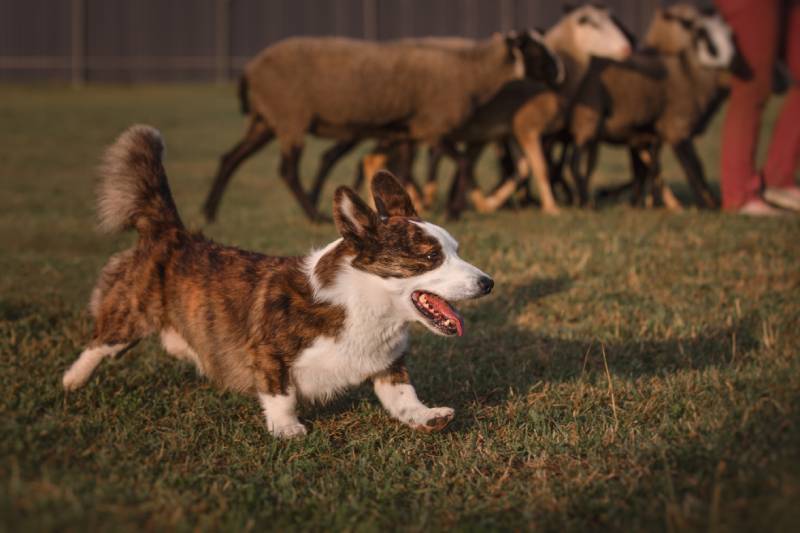
5. Teach Your Corgi Simple Commands
Start teaching your Corgi simple verbal commands while they are still young. Begin with ‘sit’ and ‘stay’. Help them associate ‘good’ with praise when they get something right.
When they’ve got the hang of those, try ‘down’ and ‘off’. For training your Corgi to put something down that they shouldn’t have picked up, try ‘drop it.’
The key to success when it comes to training your Corgi to respond to verbal cues is positive reinforcement. When your Corgi gets something right, make sure you shower them with praise and rewards immediately. Then, repeat and reward a couple more times to help it sink in.
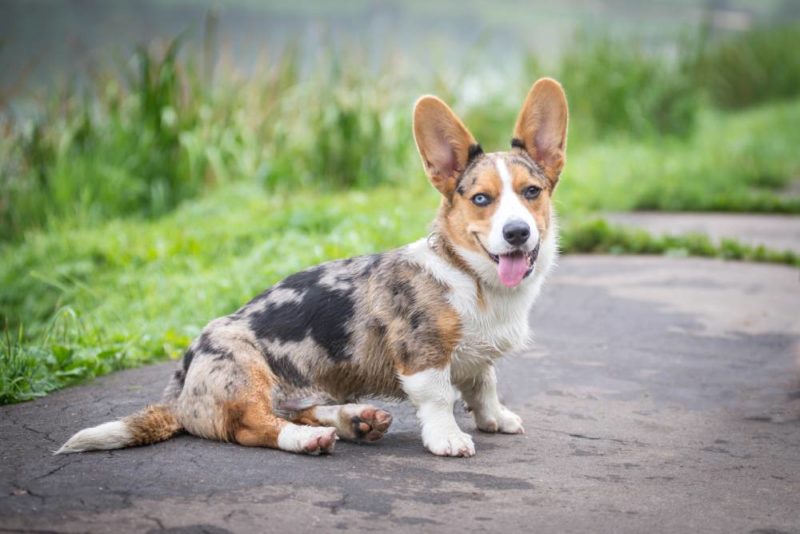
6. Exercise Your Corgi
Corgis are prone to becoming overweight, so it’s vital that they get an adequate amount of exercise each day. Start training your Corgi to play fetch while they’re still a puppy. Asides from providing plenty of fun bonding time for the both of you, playing fetch will help to keep your Corgi in a fit state.
The best toy for a Corgi puppy will be lightweight and small enough to fit in your puppy’s mouth, but not so small that they could accidentally swallow it.
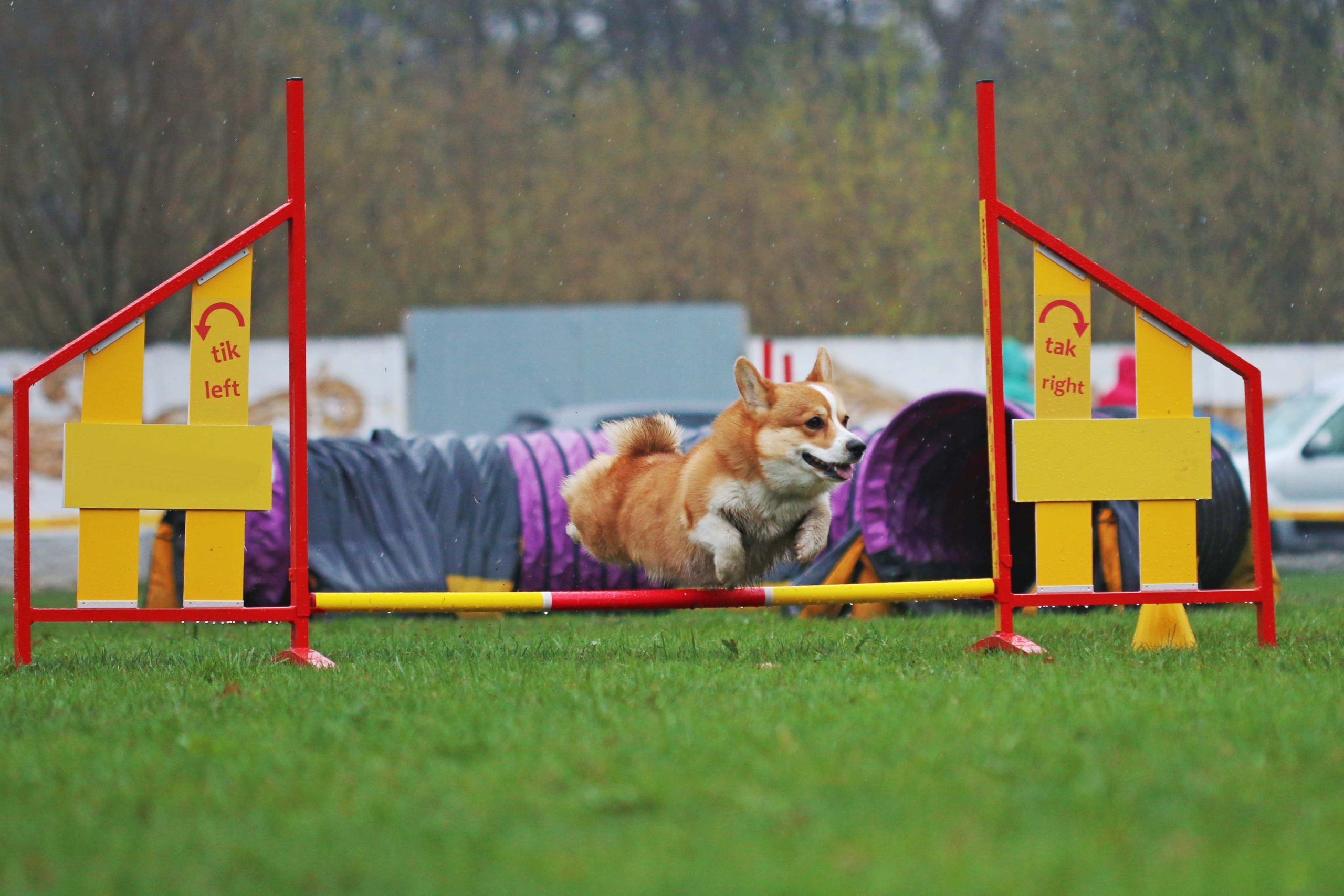
7. Start Obedience Training by 6 Months
Obedience training classes can be a great way to keep your Corgi puppy mentally and physically stimulated. Some obedience training classes are available to puppies from when they are just eight weeks old, but you can start a little later.
Obedience training can be done in large groups, or privately with a tutor who comes to work with you and your Corgi in your home. While some people prefer to get their Corgi used to being around lots of other dogs, some prefer to have the trainer’s full attention. Either way, obedience training can lead on to other classes, such as agility or flyball.
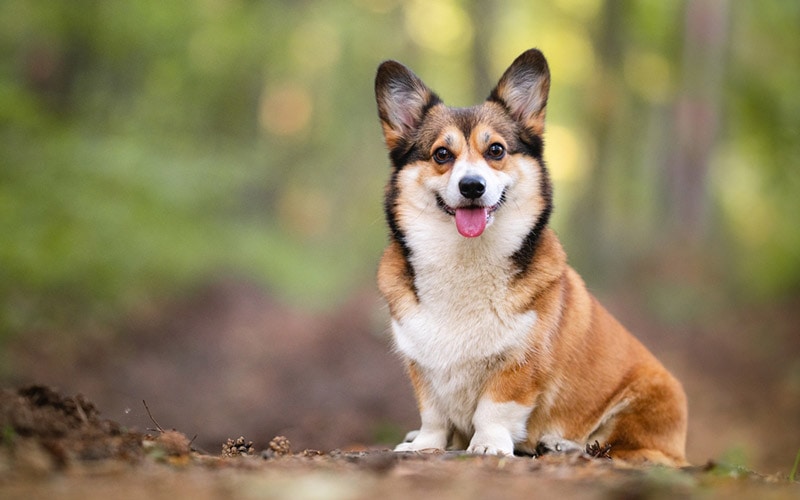
8. Remain Patient And Consistent
Corgis are smart, and they should be able to pick up new commands after just a few repetitions, but it’s vital that you remain patient throughout your puppy’s training. Dogs are very attuned to their owner’s voice and moods. They can pick up on negativity and frustration quickly.
Be consistent with your training. If you don’t want your Corgi to do something, tell them ‘no’ every time they do it.
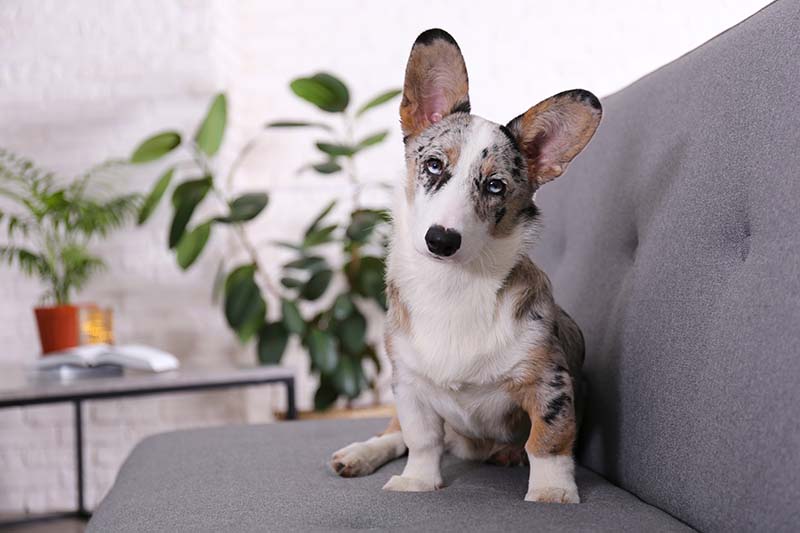
9. Learn to Read Your Dog’s Body Language
Your puppy can’t communicate with you the way another person can. You’ll need to learn to read their body language to be able to understand their needs better. By understanding their needs and limits better, you’ll be able to provide them with what they need at the correct time, strengthening the bond between you. In turn, a stronger bond should make training much easier.
Watch your dog’s posture closely. If your Corgi is uncomfortable, they may be avoiding eye contact and turning their head away from you. Other signs that your dog is unhappy include your dog sitting with their head lowered and ears back, and tucking their tail away.
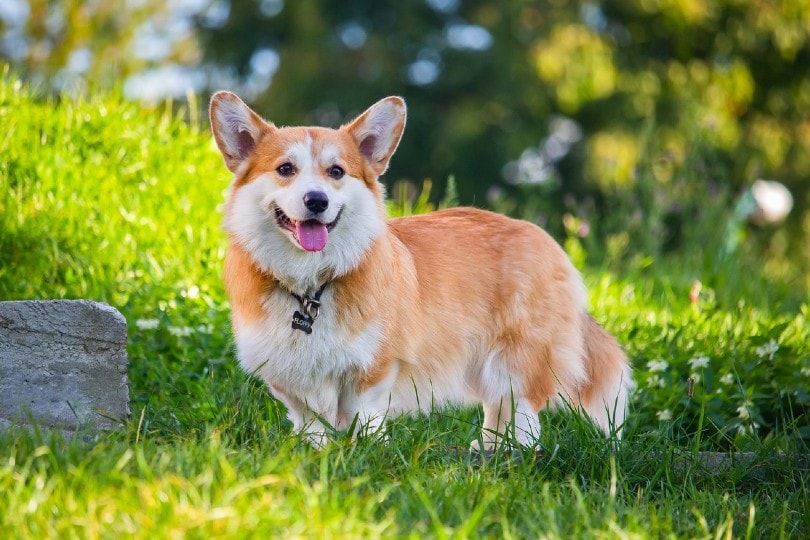
10. Do Not Punish Your Corgi
Training a puppy can be hard work! It’s normal to feel frustrated if you’re having to clean up your dog’s mess again, but remember not to punish your Corgi, or take your frustration out on them in any way.
Punishing or shouting at your dog will only result in them becoming fearful of you. This will not help your efforts in training them. For your training to be effective, you need to let your puppy know that they can trust you and that they’re safe. Instead of punishment, work on building a strong bond with your puppy, and reward them when they get something right.
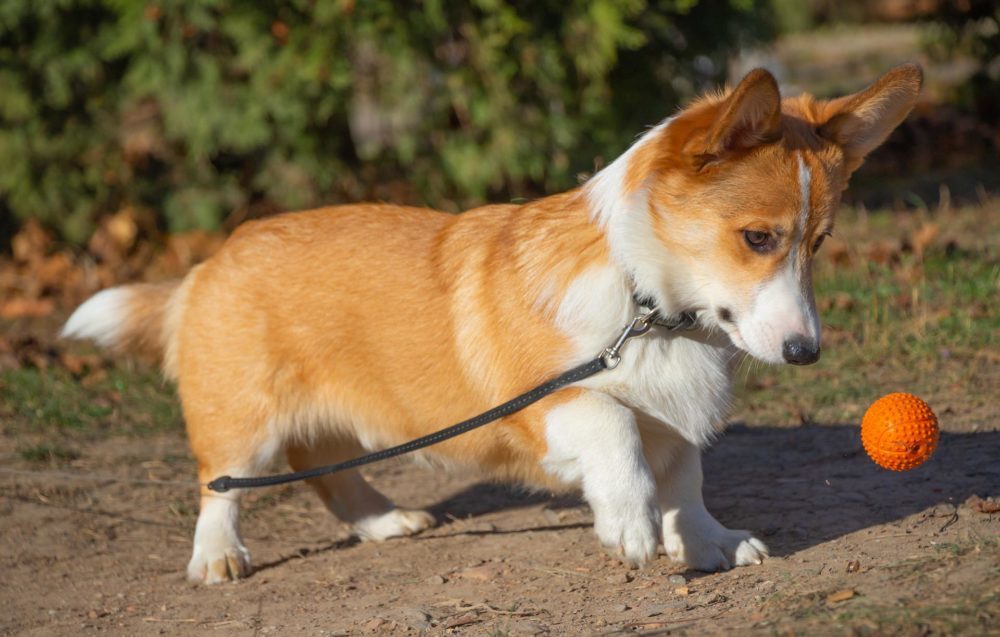
11. Reward Your Corgi Promptly
When your Corgi performs a trick or responds to a command, reward them immediately so that they can associate the reward with that action. If you wait too long, you may accidentally reinforce unwanted behavior.
As soon as your Corgi behaves in a way that you want them to, give them plenty of verbal praise and present them with their treat.
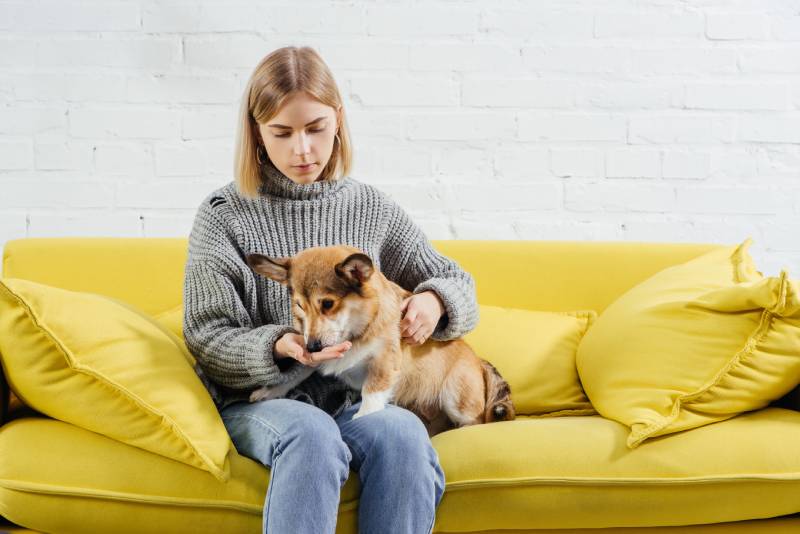
12. Do Not Overfeed Your Corgi
Corgis are prone to becoming overweight. For this reason, it’s important to make sure they are getting the correct amount of good quality dog food every day. Although rewarding your dog is important, make sure you’re not giving them too much.
As a rule of thumb, the number of treats you give your Corgi each day should add up to no more than 10% of their entire daily caloric intake.
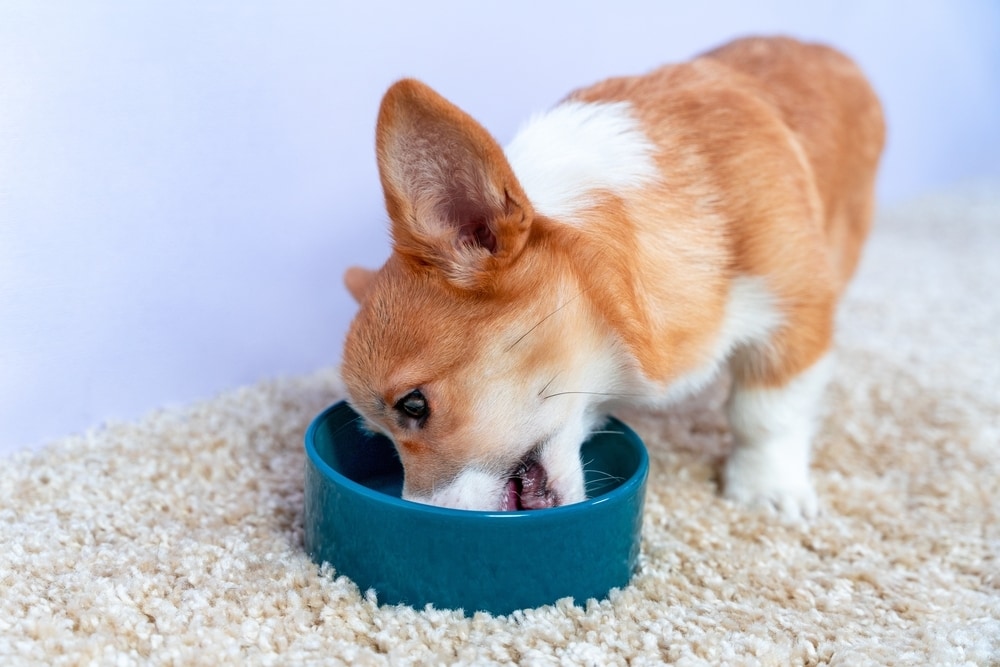
13. Avoid Accidental Reinforcement
When your dog behaves in an undesirable way, it’s important not to accidentally reward them by giving them the attention they may be trying to get. Instead, ignore your dog’s undesirable behavior by saying ‘no’ and then turning and walking away from them.
On the other hand, when your dog does respond to a command, make sure you reward them immediately. If you wait before rewarding them, they may associate the positive outcome with something else.
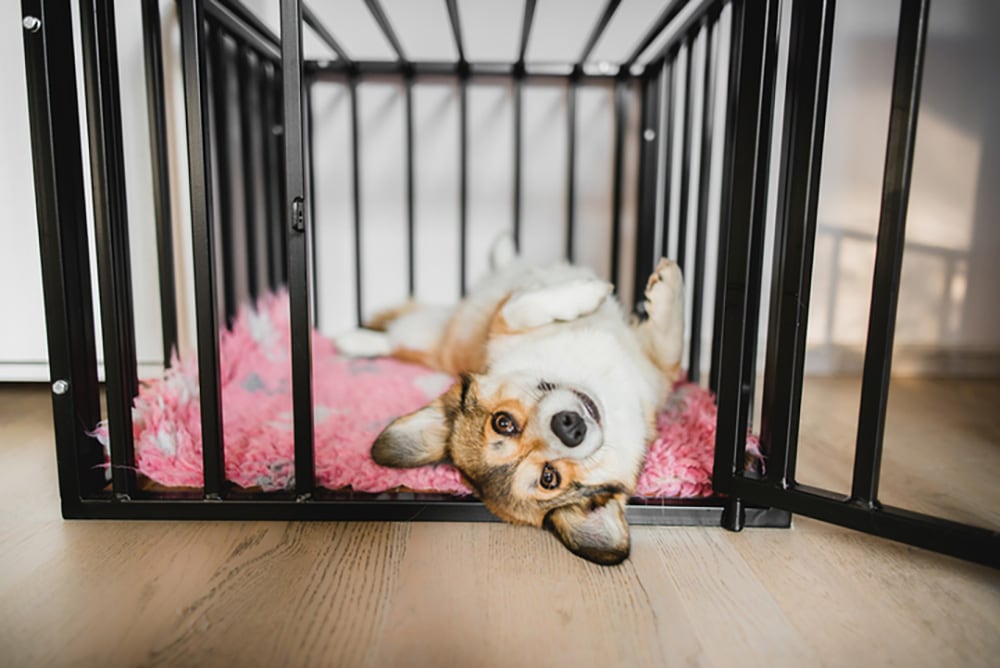
14. Train Your Dog in Short Spurts
Rather than spending hours training your Corgi, train them in short spurts. Dogs have shorter attention spans than we do, so a long training session may end with them losing interest.
Break your Corgi’s daily training up into two or three 10-minute sessions. Remembering that consistency and routine are key for effective training, try to hold the sessions around the same time each day.
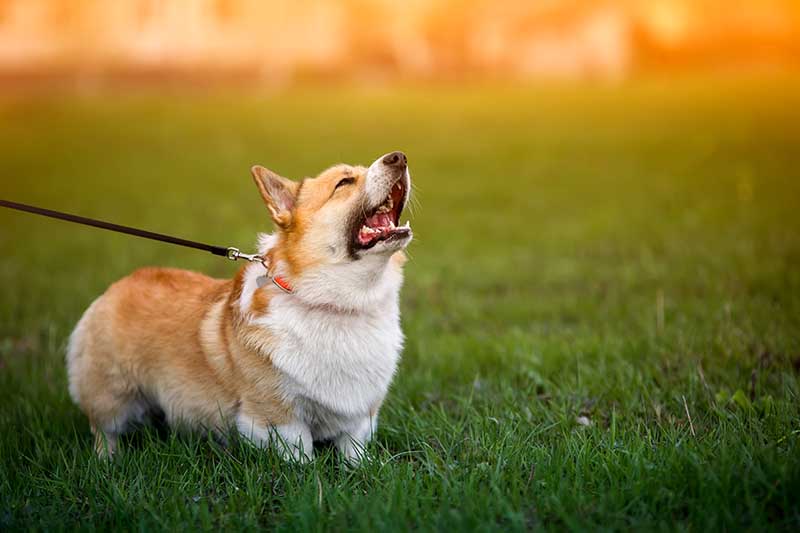
Summing Up
Corgis are wonderfully curious and intelligent little companions. With a consistent training schedule and some patience, they should pick up new commands and instructions relatively quickly. Remember to reward your Corgi immediately when they respond to a command or display behavior that you want to encourage.
Training a dog requires patience and persistence, but ultimately, it can be a great bonding experience for both of you—don’t forget to have fun and enjoy every moment!
Featured Image Credit: Tanya Consaul Photography, Shutterstock
Contents
- The 14 Tips to Train a Corgi
- 1. Socialize Your Corgi
- 2. Help Your Corgi Get Used to Their Environment
- 3. Get Your Puppy Used to Grooming
- 4. Establish a Daily Routine
- 5. Teach Your Corgi Simple Commands
- 6. Exercise Your Corgi
- 7. Start Obedience Training by 6 Months
- 8. Remain Patient And Consistent
- 9. Learn to Read Your Dog’s Body Language
- 10. Do Not Punish Your Corgi
- 11. Reward Your Corgi Promptly
- 12. Do Not Overfeed Your Corgi
- 13. Avoid Accidental Reinforcement
- 14. Train Your Dog in Short Spurts
- Summing Up

